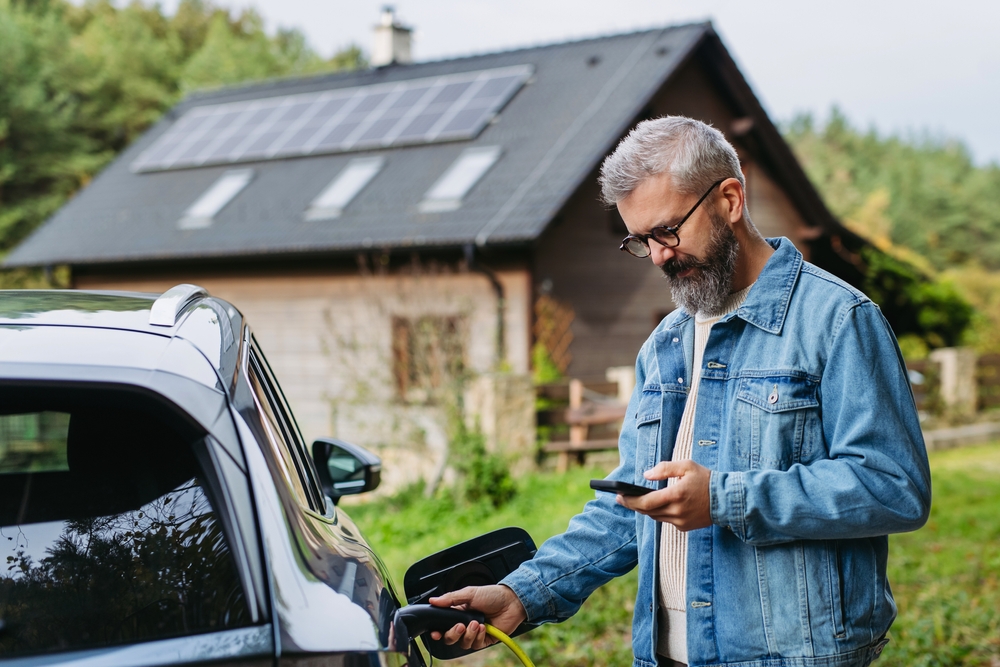
The use of solar power is now robust and common enough that it's found in several areas outside the original purpose of powering your home. One great example is the use of solar panels for electric car charging, which is becoming more and more common across the last few years.
At Intermountain Wind & Solar, we're proud to offer a wide range of solar power solutions to clients around Salt Lake City, Utah and Boise, Idaho areas, including solar EV charging stations and related solutions. A common question we get from clients interested in these products: How many solar panels are needed to charge an EV? Here are some of the chief factors that help answer this question.
For clients around Utah and Idaho alike, investing in solar EV charging stations is a smart move for several reasons:
Now let's look at some of the main factors that help determine how many solar panels are needed to charge an EV.
As you may have guessed, one of the top variables that influences how many solar panels are needed to charge an EV is the type of charger you use. Some chargers are more efficient than others, meaning they require less solar energy to charge your vehicle.
For example, a Level 1 EV charger typically requires about 3 kW of power to fully charge an electric car in 8-12 hours. This can equate to around 10-15 solar panels depending on their size and efficiency. On the other hand, a DC Fast Charger can provide up to 200 miles of range in just one hour, but it may require closer to 50 solar panels due to its higher energy demand.
The brand and specific model of charger is also important to note. This is one area where working with solar professionals is helpful, as they will be able to identify the ideal charger for your specific needs and solar setup.
Another chief factor to consider when determining the amount of solar panels needed for electric vehicle charging is the capacity of your vehicle's battery. The larger the battery, the more energy it will require to fully charge.
For example, a Tesla Model S has a battery size of 100 kWh and a range of approximately 370 miles on a full charge. This means that for each mile driven, approximately 0.27 kWh of energy is consumed. Therefore, if you drive an average of 40 miles per day, your vehicle would consume around 10.8 kWh per day.
Using this calculation, you can estimate how much additional energy will be needed from your solar panels to cover your daily driving needs. Most vehicles tend to take between 4-8 hours to charge fully, if you're also concerned with the timing of this process.
When it comes to how many solar panels you might need to install to facilitate daily EV charging from your home, another important variable is your average daily mileage. Different households drive different distances on a daily basis, so it's important to take this into consideration when planning your solar panel setup.
For instance, if you're only driving short distances for daily errands and work commutes, you may not need as many solar panels as someone who drives long distances frequently. It's always best to assess your own driving habits and research the energy consumption of your specific EV model to get a more accurate estimate of how many solar panels would be necessary for your needs.
If you're thinking about solar EV charging and wondering how many panels you would need, don't hesitate to reach out to Intermountain Wind & Solar. Our team of experts is here to help with these and all other solar power needs around Utah and Idaho. Contact us today!





"All of the photos on this website are of real projects that Intermountain Wind & Solar has designed and installed.
We are proud to show off and stand behind our work."